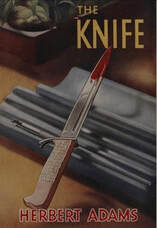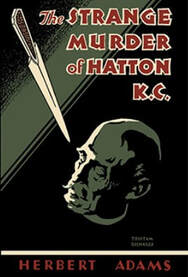
Astride a Grave is James’s eighth novel to feature Harpur and his dangerously perceptive boss, ACC Desmond Iles. I have been enjoying this surprising, gritty, and very funny police series immensely, but Grave is the first book that felt like it added up to less than the sum of its parts. James’s writing is as sharp and engaging as ever, and the book delivers the humor and psychological pressure-tests found in other tales. This time around, though, the story isn’t fashioned around a group of mismatched crooks coming together to rob a bank. The bank has already been robbed – in the previous entry Club – and Astride a Grave focuses on the aftermath of the robbery: those left standing (and the spouse of one victim caught in the crossfire) want their share, and not everyone agrees about the method and means of distribution.
It should be a fine, unique setting for a crime novel: thieves fall out as police tighten the net to find the robbers. Robbery leader Caring Oliver Leach has gone to ground but comes out of hiding to confront Panicking Ralph Ember, a partner with literal weak knees and a burdened conscience. In an early chapter, tensions mount, guns are grappled over, and Ralph dispatches his ex-boss and buries him in the woods. But the complications are just beginning for Panicking Ralph, who must also contend with Caring’s wife Patsy – who becomes increasingly attracted to her husband’s incidental murderer, with his scar and his Charlton Heston looks – and Anna Chitty, whose own husband was killed in the Exeter bank robbery. Harpur and Iles continue to pay visits to Ralph’s bar The Monty, hoping to shake the already unsteady owner off balance. The scrutiny only becomes more intense when Patsy’s daughter Lynette disappears; did she run away or is she being held as leverage by someone who wants their share of the loot?
And yet, I found something derivative about this installment, as if characters, situations, and standoffs had been presented before. And indeed they had been, in other stories and with different permutations. Panicking Ralph has featured centrally in the last few books, and while his combination of twisted honor and psychological weakness are interesting to a point, his man-alone personality (and the author’s continuing interest to live inside this character’s neurotic head) makes him far less attractive to me than he is to Patsy Leach.
DI Harpur’s compulsive bed-hopping has also been explored in other installments; Harpur has been playing with fire by carrying on with the wife of a department sharpshooter, and now he makes a suspicious enemy of Iles by starting an affair with the Assistant Chief Commissioner’s wife, Sarah. Certainly, the behavior speaks volumes about Harpur’s need not for sex but for rule-breaking and living on a decidedly dangerous edge. Even a child’s disappearance and the subsequent search, used so brilliantly in Protection (1988) and The Lolita Man (1986), doesn’t feel quite so urgent or important here.

As with Beckett’s famous line, Bill James’s books seem to deliver a rather unpalatable paradox about life: at birth we are born racing to die, and in each person lies the potential for moral hypocrisy. It is precisely because we are racing toward our graves that we continually question whether society’s rules are really so inviolate as we believe.


 RSS Feed
RSS Feed